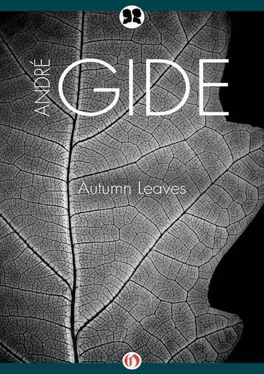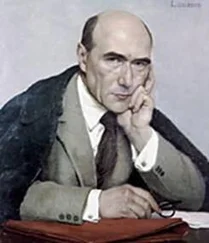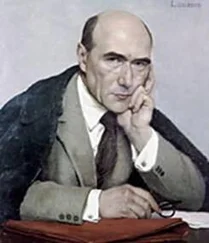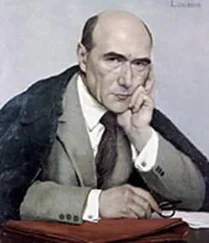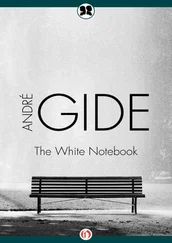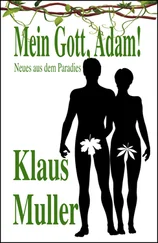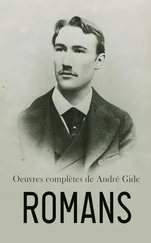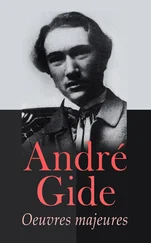It was only in his family that I could appreciate Bernardino’s charm, his good nature with his brothers, his obligingness with everyone. In the pool one would have thought him another being, laughing, joking, mischievous and liberated. I loved those two Bernardinos with very different loves; my feeling for the terrestrial Bernardino became purified, but I think he preferred what I felt for the Bernardino of the pool; at least, in the water he showed himself more friendly, more winning, more wanton and tenderly voluptuous.
What became of him? I don’t know. Five days after I had to leave Acquasanta to which I never returned.
PERODICTIQUE POTTO: That is how the scholars have baptised him. He has no other name in our language. But I called him Dindiki 1, the name the natives over there gave him.
This little animal, although belonging to the family of primates, bears almost no resemblance to the monkey. He would remind you much more of a hedge-hog with soft hair, or a very little bear, a pocket-bear.
He is a climber. Native of the equatorial forest, he lives in the inaccessible tops of tall trees. He is, besides, a nocturnal animal. For those two reasons he remains difficult to catch; but, on the other hand, he is very slow and does not seem to be afraid of man. If he is not seen more often it is, I believe, because he is rather rare. As soon as I had understood what a charming animal Dindiki was, I sent some men out to find a companion for him. I already imagined the couple in France; he was founding a family and I was offering a little pérodictique to Larbaud. In spite of the promised rewards to the native huntsmen, they came back after failing completely.
Dindiki had been given me by the chief of Zaoro-Yanga, a little village north of Nola. He was still very young. In the hen-coop of woven reeds, in which he was then enclosed, he looked like a fat rat; and I hesitated to accept him not having any inkling of his good disposition. But, from the first day, I saw he was not savage; let out of his coop, he did not try to run away. For three weeks I thought it prudent, nevertheless, to keep him on a leash, at the end of a string attaching one of his paws to my chair, to my hammock or my bed. But he was soon able to persuade me that this tying-up was unnecessary and that the adoption was reciprocal. From then on he lived close to me, against me, in my lap, on my shoulder. I was probably his tree; a tree that walks and takes you where you don’t want to go.… Dindiki, my constant little companion throughout that long voyage, to-day I still miss and regret you. O living memory of the great equatorial forest and its shadowy charm! When, after seven months of friendship, a little before arriving at Douala where we were to embark, you left me for some other world, it was to all that distant country that, at the same time, I said goodbye.
On my return to Paris, I found some pérodictiques in the galleries of the Museum, but stuffed, and the naturalists told me that they had never seen any living ones. Before speaking of his customs, I am going to try to describe him.
The pérodictique’s coat is of an ashen gray-brown. The hair, lighter and softer on the stomach, becomes, as it nears the middle of the back, almost rough; particularly along the neck and the shoulders, it completely covers up the very prominent apophyses of his cervical vertebrae. It is the peculiarity of his anatomy that naturalists point out as the most noticeable; at the height of the shoulder blades, seven protuberant vertebrae form a crest or saw teeth. Perhaps the apophyses make a hole in the skin with age, as some say; but the skin still completely covered up Dindiki’s. I read, too, that these peculiar protuberances, hidden, as I have said, by the hair, but very noticeable to the finger, served doubtless as a means of support to the pérodictique, and that he dug them into a flaw of the bark when he was preparing to go to sleep. That does not appear very probable to me. I think more likely that he uses them as a sort of snout when, sticking his head between his front paws as the hedgehogs do, and arching his back, he advances, as I have seen him do, to frighten a not very redoubtable enemy (it was a little dog) or to charge upon an obstacle. It is also with his head folded between his paws and all rolled up in a ball that he sleeps; the very long hair at his neck warns him of the least unusual contact.
His nose is not more elongated than the bear’s. Of his eyes can be seen only a reddish-brown iris; almost no pupil; the diaphragm is closed during the day. The arch of his eyebrow shows a slight protuberance, more perceptible to the finger than to the eye; it surrounds the eye with a wide parenthesis, as fine as the crescent of the moon on the first day of rhamadan. The rounded spirals of his tiny little ears are drowned in hair; he has the incisors of the rodent and the canines of his upper jaw developed and apparent.
His paws … but the word “paw” is inappropriate; he has arms and legs and hands. Four hands of which it is not enough to say the thumb is opposable; this very long thumb does not form an angle with the other fingers but just prolongs the index of the hands behind, and the third finger of the hands in front; for, on the front paws, the index finger is lacking, exists no longer, except as a little stump of an index scarcely raising the skin.
His nails are short, like those of the monkey, except that on the index finger of the hands behind, which, as though to compensate for the absence of the index finger on the hands on front, is extremely long, forming a claw which he uses for scratching.
Thanks to the disposition of his thumbs and his musculature, his hug is formidable. The natives affirm that he strangles animals much larger than himself, monkeys in particular, which he surprises in their sleep. When he clutches a branch, he can not be made to let go; he would sooner be quartered; he gets mad if you insist, tries to bite and utters furious cries. He has that in common with the little loris, sloth of the Sunda Islands that, I think, resembles him closely; but Oken 1tells us that the latter gives off a repulsive odor, which is not the case with Dindiki.
Like the loris, the pérodictique only gets around slowly; “slow and deliberate in his movements,” says Christy who speaks of him very pertinently but incidentally, in his remarkable work on the animals of the equatorial forest. He never opens his front hand until the corresponding back hand is first assured of its prey. The bound is contrary to his ethics. “Natura non fecit saltus” is his rule of conduct, and “Festinare non decet.” You could say he proceeds by syllogisms. If you want to make him hurry, he turns toward you, protests with little cries, irritated as though you were cutting the thread of his reason.
He is agile only when he climbs. On the ground his movements are awkward, comical; he advances with the little trot of the plantigrade, with the affectation of Charlie Chaplin. Then only he begins to hurry; he runs toward the trunk of a tree, the first in sight, or toward a leg; his hands grip it, his limbs give enormous hugs with both arms and legs; in no time at all he raises himself; there he is again on my shoulder; he puts his arms around my neck, his nose against my cheek. (The power to kiss is the permission for tenderness). You wait for him to purr; but each being has his particular eloquence; by his caress Dindiki makes me know he is happy.
My hair has much more attraction for him than my face; doubtless he finds in it a more vegetable appearance; doubtless he considers my hairy skin like a sort of hairy bark; he does not lick as much as he scratches, very gently with his long front teeth; you would say he wanted to skin me. But the light bothers him; he slips into my half open shirt, and there, soon all relaxed, everything abandoned, absolutely tranquil, protected from the wind, the sun, from being seen, he falls asleep. I can walk, ride horse-back, hunt, he’ll not budge any more until evening. The food I offer him draws him out of his beatific drowsiness a little, but he plunges back into it again immediately.
Читать дальше
